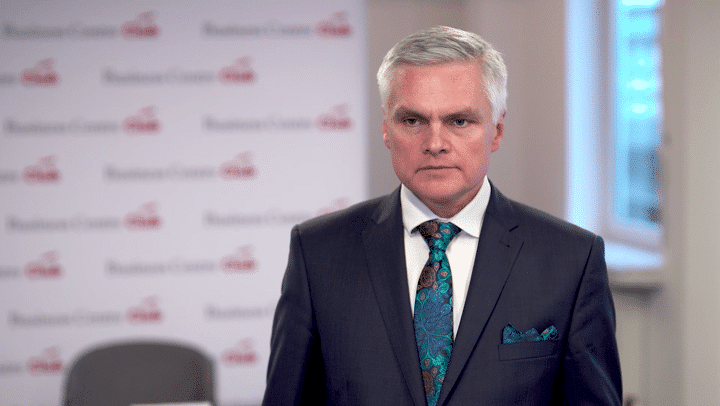The year 2024 will be marked by the activation of EU funds and the mobilization of resources from the KPO. Economic growth will accelerate, also driven by private consumption. The dwindling labor supply will pose increasing challenges, which should be addressed by boosting investment. In March, a 50-bp rate cut is expected, according to Marcin Mrowiec, Minister of Economy of the Economic Shadow Cabinet of BCC and chief economist of Grant Thornton.
Inflation will bottom out in the first quarter and then accelerate to around 7%. If the Monetary Policy Council does not cut interest rates in March, it will not do so for several subsequent quarters of 2024. The window for rate cuts will close, primarily due to persistent high inflation.
Wage increases and pension valorization
Pension valorization will lead to an increase of several percent, while the average nominal wage increase in the entire economy will exceed 10% year-on-year. This significant, widely distributed wage growth will, on the one hand, fuel the growth of private consumption and GDP, and on the other hand, have an inflationary effect. A minimum wage increase (by 20%), according to estimates by the Ministry of Labor and Social Policy, will affect about a quarter of the employed. – as we read in the report by the author Report Forecasts for the Polish economy for 2024.
The BCC expert also points out that in 2024 we will be dealing with a very high deficit of the public finance sector (in nominal terms, the highest in history) in a situation of strong economic growth. – This is one of the signs of a very serious disease of the public finance system in Poland. Investors will closely monitor whether the new government intends to consolidate public finances, including reducing expenditure, or will continue the policy of high deficits, financed by debt growth. In the second scenario, one should expect high debt service costs and a weakening of the zloty exchange rate. – Marcin Mrowiec argues.
KPO
2024 will mark the activation of EU funds and the mobilization of KPO resources. These factors will drive economic growth. From a strategic point of view, however, the activation of private sector investments will be more important. It is primarily necessary to calm the “regulatory front” and ensure reliable consultation of proposed legal and tax changes, implement reliable regulation impact assessment, and ensure longer vacatio legis (period between the enactment and the entry into force of a new law). It is good that the declaration of actions in this direction is included in the coalition agreement of the new government.
Clean up the tax mess!
A review and removal of the most harmful regulations for business development should also be carried out, including those introduced by the so-called “Polish Deal”. An important issue will be a review of existing legislation encouraging investment and answering questions: Do the laws passed by the previous government fulfill their task? Shouldn’t they be recalibrated? One of the more strategically important tasks will be to begin work on a thorough overhaul of our tax system, to transform it from the current situation of being the most convoluted and most difficult “to service” system in all of Europe into one that is transparent, consistent, logical, and easy “to service”.
